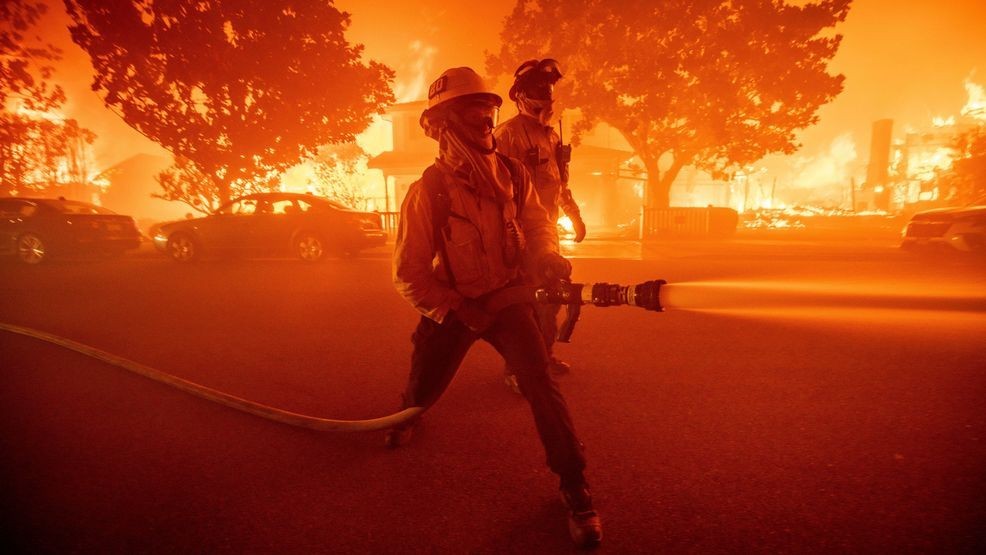The devastating wildfires that swept through Los Angeles in January 2025 have left an indelible mark on the city, with thousands of acres burned, numerous structures destroyed, and lives tragically lost. Amidst this catastrophe, the valiant efforts of first responders stand out as they battled the infernos to protect lives and property. However, as the immediate flames subside, a looming threat persists: the potential long-term health consequences faced by these firefighters due to toxic exposures. Drawing parallels to the health crises experienced by 9/11 first responders, it is imperative that we proactively address and mitigate these risks to prevent repeating past mistakes.
Lessons from 9/11 First Responders
In the aftermath of the September 11, 2001 attacks, thousands of first responders were exposed to a hazardous mix of dust and debris. This toxic environment led to a multitude of health issues, including respiratory diseases and various cancers. Notably, more firefighters have now died from 9/11-related illnesses than were killed on the day of the attacks. The latency period of certain diseases means that symptoms often appeared years after the initial exposure, complicating diagnosis and treatment. This tragic outcome underscores the necessity of early intervention and continuous health monitoring for those exposed to hazardous conditions.
Toxic Exposures in Urban Wildfires
Wildfires that encroach upon urban areas, such as the recent Los Angeles fires, present unique health hazards. When synthetic materials in homes and buildings burn, they release a plethora of toxic substances, including dioxins, polychlorinated biphenyls (PCBs), and asbestos—all known carcinogens. A 2022 study highlighted that individuals residing in wildfire-prone regions have a 5% increased risk for lung cancer and a 10% higher risk for brain cancer. For firefighters, the intensity and duration of exposure to these toxins are significantly higher, amplifying their risk of developing serious health conditions.
Current Health Concerns for Los Angeles Firefighters
The January 2025 wildfires in Los Angeles have raised alarms about the potential health implications for first responders. Experts have unveiled research emphasizing the need to better protect the health of firefighters in the wake of these fires. The immediate health risks include respiratory issues due to inhalation of smoke and particulate matter. However, the more insidious threats lie in the long-term effects, such as the development of cancers linked to sustained exposure to hazardous substances.
Proactive Measures and Recommendations
To safeguard the health of our firefighters and prevent a recurrence of the post-9/11 health crisis, several proactive measures should be implemented:
- Comprehensive Health Monitoring: Establish mandatory health surveillance programs for all firefighters involved in battling urban wildfires. These programs should include regular medical examinations, cancer screenings, and respiratory function tests to facilitate early detection of potential health issues.
- Enhanced Protective Equipment: Ensure that firefighters are equipped with advanced personal protective equipment (PPE) designed to filter out a broader spectrum of toxic particles and gases. Continuous research and development should be supported to improve the efficacy of PPE.
- Mental Health Support: Recognize the psychological toll of firefighting in hazardous environments. Provide accessible mental health resources, including counseling and support groups, to address issues such as post-traumatic stress disorder (PTSD) and anxiety.
- Legislative Action: Advocate for policies that guarantee healthcare coverage and support for firefighters suffering from work-related illnesses. The establishment of dedicated funds, similar to the World Trade Center Health Program, can ensure sustained medical care and financial assistance.
- Public Awareness and Advocacy: Educate the public and policymakers about the risks faced by firefighters. Increased awareness can lead to better support systems, funding for health programs, and improved safety regulations.
The heroism displayed by firefighters during the Los Angeles wildfires is a testament to their unwavering commitment to public safety. As a society, we owe it to these brave individuals to learn from past tragedies and implement measures that protect their health and well-being. By acknowledging the lessons from 9/11 and proactively addressing the risks associated with urban wildfire exposures, we can honor their service and ensure they receive the care and protection they rightfully deserve.

